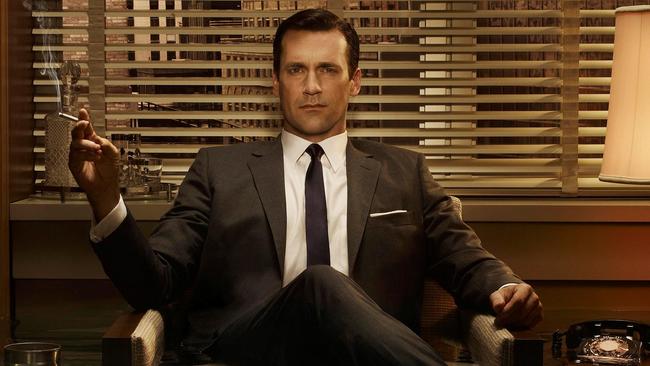Creative industries are right to fear the impact of AI on their future
The AI revolution is upon us and, for the creative industries, will produce either tantrums or joy, as Mad Men’s Don Draper may have put it.

There’s an episode of Mad Men, the American television drama about the advertising industry in the 1960s, in which Don Draper, the protagonist, says: “Change is neither good nor bad. It simply is.”
This week, WPP, the world’s biggest advertising business, said it was creating a platform to automatically generate content for its customers, a change bigger than anything Draper could have imagined. Teaming up with Nvidia, the powerhouse chip manufacturer, WPP said it would use generative artificial intelligence to create accurate, photo-realistic versions of client products and brands. You could make an image of a car, for example, and place it in any environment at the click of a mouse.
It is one example of a creative business forging its own path by embracing this groundbreaking technology as it proliferates.
Yet, while WPP is leaning into the changes wrought by AI, for others it is, at the moment, quite simply “bad”.
As a result, a drama around generative AI is unfolding to rival any portrayed in Mad Men: a battle between the rights holders, or creative businesses, and users, or technology companies.
It might be less dire than the extinction risk some AI bosses have warned of this week, but some fear that, without intervention, it could spell an end to business models dependent on intellectual property.
It is something we need to get to grips with quickly, because for those who trade in intellectual property, such as the music and publishing businesses, the technology can be a nightmare.
Rights holders are watching as AI sucks up and uses swathes of their content to make new material.
They fear what that means for their artists, writers, actors or designers; technology businesses want the content to develop their products. A lot is at stake.
Groups such as the Human Artistry Campaign are springing up to raise awareness of the issue. Some companies, such as Getty Images, have already filed lawsuits.
Others, such as Universal, have made their own investments into what the record label calls “ethical AI”, ensuring its musicians get paid if their work is used by another.
It would seem only fair, but payment is, surprisingly, not guaranteed.
While some technology businesses are licensing data, many are not. Furthermore, it is not always easy to prove what content has been used to generate something new.
In a report in March on how emerging technologies such as AI should be regulated, Patrick Vallance, Britain’s chief scientific adviser at the time, recommended that the government “announce a clear policy position on the relationship between intellectual property law and generative AI to provide confidence to innovators and investors”.
In response, the UK government said it was trying to “keep the right balance between protecting rights holders and our thriving creative industries, while supporting AI developers to access the data they need”. A consultation on the issue closes on June 21 and a code of practice should be in place by the northern summer.
“The government intends to take a voluntary approach,” it said. “However, this may be followed up with legislation if the code of practice is not adopted or agreement not reached.”
Don Draper’s quote about “change” ends with the following: “It can be greeted with terror or joy, a tantrum that says, ‘I want it the way it was’. Or a dance that says, ‘Look, something new!’.”
The terror from the creative sectors is justified. We need to make sure that it ends with a dance.
The Times

To join the conversation, please log in. Don't have an account? Register
Join the conversation, you are commenting as Logout